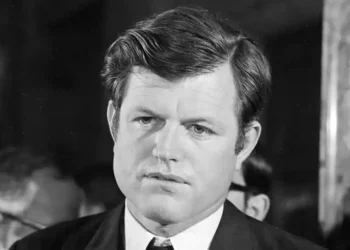Today in History: June 25 — The Korean War Begins and Other Major Moments
June 25 marks a day of pivotal events in global and American history, from the outbreak of the Korean War to landmark Supreme Court rulings and cultural milestones. Here’s a look back at what happened on this day through the decades.
1950: War Erupts on the Korean Peninsula
On this day in 1950, North Korean forces crossed the 38th parallel and invaded South Korea, triggering the Korean War. The conflict would rage for more than three years, draw in both U.S. and Chinese troops, and ultimately result in a devastating toll of over 4 million lives, the majority of them civilians. Though an armistice was signed in 1953, no formal peace treaty was ever concluded, and tensions on the Korean Peninsula persist to this day.
1876: Custer’s Last Stand Begins
The infamous Battle of the Little Bighorn—also known as Custer’s Last Stand—began in Montana Territory. A combined force of Lakota Sioux, Northern Cheyenne, and Arapaho warriors clashed with the U.S. Army’s 7th Cavalry. Lieutenant Colonel George Armstrong Custer and 268 of his men were killed, along with as many as 100 Native American fighters. Among the fallen was Mark Kellogg, the first Associated Press reporter to die in the line of duty.
1938: Minimum Wage and Labor Protections Become Law
President Franklin D. Roosevelt signed the Fair Labor Standards Act into law, establishing key worker protections that are still in place today. The act created a national minimum wage, mandated overtime pay, and banned oppressive child labor, becoming a cornerstone of American labor rights.
1947: Anne Frank’s Diary is Published
“The Diary of a Young Girl”, written by Anne Frank while hiding from the Nazis in Amsterdam, was published for the first time. The diary has since become one of the most powerful personal accounts of the Holocaust, read by millions around the world.
1973: Watergate Testimony Rocks Washington
In a gripping moment of political drama, John Dean, former White House Counsel, began testifying before the Senate Watergate Committee. His testimony directly implicated top Nixon administration officials—including the president himself—in the infamous break-in and cover-up, leading to a scandal that would ultimately topple a presidency.
1990: Supreme Court Issues First “Right-to-Die” Ruling
In Cruzan v. Director, Missouri Department of Health, the U.S. Supreme Court ruled 5-4 that states could bar families from withdrawing life support from comatose relatives without clear prior consent. It was the court’s first ruling on the “right to die,” sparking nationwide debate on medical ethics and end-of-life decisions.
1993: Canada’s First Female Prime Minister Takes Office
Kim Campbell broke new ground when she was sworn in as Canada’s 19th prime minister—the first woman to ever hold the country’s highest office.
1996: Deadly Bombing in Saudi Arabia
A truck bomb exploded at a U.S. military housing complex in Khobar, Saudi Arabia, killing 19 Americans and injuring hundreds more. The attack marked one of the deadliest assaults on U.S. forces overseas in the 1990s.
2015: Supreme Court Preserves Obamacare
In a major legal victory for President Barack Obama’s Affordable Care Act, the U.S. Supreme Court ruled 6-3 in King v. Burwell that federal health insurance subsidies could continue nationwide. The decision helped preserve coverage for millions of Americans.
2021: Derek Chauvin Sentenced for George Floyd’s Murder
Former Minneapolis police officer Derek Chauvin was sentenced to 22 ½ years in prison for the murder of George Floyd. The sentencing followed a high-profile trial and came after Floyd’s death sparked global protests against racial injustice and police brutality, becoming one of the most defining moments in recent American history.
Final Thought
Whether marking moments of tragedy, justice, or progress, June 25 stands as a powerful reminder of how history shapes—and continues to reflect—the world we live in today.
This article was rewritten by JournosNews.com based on verified reporting from trusted sources. The content has been independently reviewed, fact-checked, and edited for accuracy, neutrality, tone, and global readability in accordance with Google News and AdSense standards.
All opinions, quotes, or statements from contributors, experts, or sourced organizations do not necessarily reflect the views of JournosNews.com. JournosNews.com maintains full editorial independence from any external funders, sponsors, or organizations.
Stay informed with JournosNews.com — your trusted source for verified global reporting and in-depth analysis. Follow us on Google News, BlueSky, and X for real-time updates.














